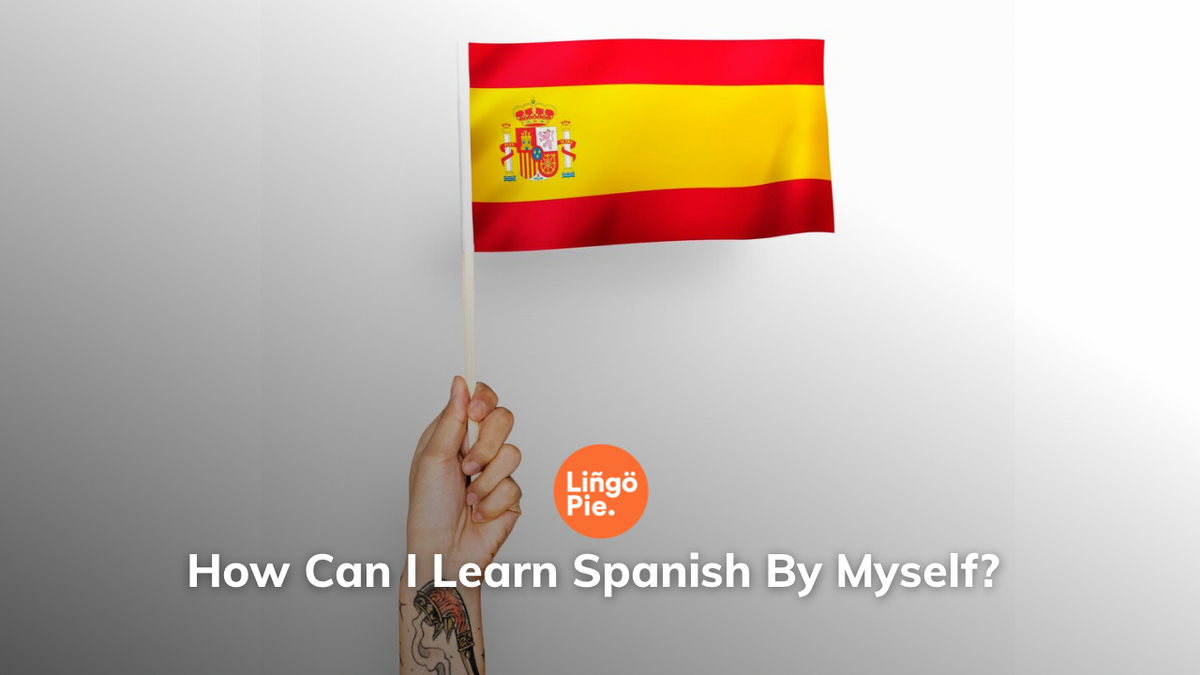Hablas español? No? No problem! In this post, we're going to talk about one of the world's most useful languages - Spanish! Spoken by millions all over the globe, it's only natural for learners like you to get curious about whether it's actually worth investing your time one.
The good news?
Spanish has a secret advantage for native English speakers - it's considered one of the easiest foreign languages to pick up! Thanks to centuries of shared history and linguistic roots, Spanish feels like a natural fit. The grammar is more straightforward, and you'll instantly recognize tons of vocabulary words.
So if you're looking for more reasons to learn Spanish then read along!
Table of Contents
- Define Your Goals
- Create a Study Plan
- Start with Essential Vocabulary
- Grammar and Sentence Structure
- Immersion through Listening and Speaking
- Reading Comprehension
- Writing practice
- Online Language Learning Plataforms
- Language Exchange Programs
- Stay Motivated
- FAQs for Learning Spanish by Yourself
- Summing Up

Can You Really Learn Spanish On Your Own?
The great news is that Spanish is considered one of the easiest languages for native English speakers to learn on their own. In fact, according to language experts, you can become fluent in Spanish in just 6 months if you dedicate around 3 hours of study per day.
Why is Spanish so achievable for self-learners from an English background? It all comes down to the close connections between the two languages. Spanish and English share Latin roots, making tons of vocab words instantly recognizable. Plus, Spanish grammar tends to be more straightforward than English rules.
Imagine - in just 24 to 30 weeks of focused self-study, you could be chatting away in one of the world's most widely spoken languages! No need for expensive classes or tutors. Just grab some fun learning apps, movies, music, and books, and immerse yourself in the language.
Of course, self-learning Spanish requires discipline and smart study habits. But with Spanish, you've got a major head start. Set a consistent routine, practice speaking out loud, and take advantage of the endless free online resources. Before you know it, ¡hablarás español como un nativo!
Define Your Goals
Before diving into the world of Spanish language learning, it's vital to define your goals. Ask yourself why you want to learn Spanish and what level of proficiency you hope to achieve. This will help you establish a clear roadmap and tailor your learning approach accordingly.
Create a Study Plan

Developing a structured study plan is crucial to maintain consistency and make progress in your language learning journey. Dedicate specific time slots each day or week to practice Spanish. Divide your study sessions into different components such as vocabulary, grammar, reading, writing, listening, and speaking. By distributing your efforts across all language aspects, you will build a solid foundation.

Start with Essential Vocabulary
Building your vocabulary is a fundamental step in learning any language. Begin by focusing on commonly used words and phrases in Spanish. Utilize flashcards, vocabulary apps, or online word lists to expand your knowledge gradually. Practice and review these words regularly to reinforce your understanding.
Grammar and Sentence Structure
Understanding grammar is vital for constructing meaningful sentences and expressing yourself accurately. Invest time in learning Spanish grammar rules, such as verb conjugations, tenses, pronouns, and sentence structure. Online resources, textbooks, and grammar exercises can prove invaluable in grasping these concepts.
Immersion through Listening and Speaking

Immersing yourself in the Spanish language is key to developing fluency and conversational skills. Listen to Spanish podcasts, audiobooks, and spanish songs to refine your listening comprehension. Mimic native speakers, practice pronunciation, and engage in conversation with language exchange partners or tutors. Apps like Tandem and HelloTalk connect you with native Spanish speakers willing to engage in language exchanges.
Reading Comprehension
Reading Spanish texts, such as news articles, books, or blogs, helps expand your vocabulary and comprehension skills. Start with simple texts and gradually progress to more complex ones. Utilize online translation tools, dictionaries, or language learning platforms like LingQ to enhance your reading experience.
Writing Practice
Developing your writing skills is essential for effective communication in Spanish. Write journal entries, essays, or short stories to practice constructing sentences and expressing your thoughts in writing. Seek feedback from native speakers or join online writing communities to improve your written proficiency.
Online Language Learning Platforms
Leverage online language learning platforms like Lingopie are specially designed to assist independent language learners. These platforms provide structured lessons, interactive exercises, and progress-tracking tools to guide your learning journey. Some platforms even offer personalized coaching sessions to enhance your skills further.

Lingopie is a language learning platform that harnesses the power of authentic video content like TV shows and movies to teach languages, including Spanish. For those keen on mastering Spanish on their own, Lingopie offers a unique and engaging approach. Choose a Spanish-language series or movie and start your journey. The platform features interactive subtitles; if there's a word or phrase you're unfamiliar with, just click on it for an immediate translation.
Since Lingopie's content reflects real-world conversations, you'll encounter a variety of colloquialisms and expressions. It's a fun and natural way to grasp the nuances of the language while watching popular content. Remember to practice by repeating phrases, mimicking pronunciation, and integrating what you've learned into your dialogues.
Language Exchange Programs

Participate in language exchange programs to immerse yourself in the Spanish language and culture. Websites like ConversationExchange or Meetup connect language learners with native speakers for language practice sessions in person or through video calls. Collaborating with fellow language enthusiasts fosters cultural exchange and helps you gain practical language experience.
Cultural Immersion
Language learning goes hand in hand with cultural immersion. Explore Spanish culture through music, movies, TV shows, and cuisine. This not only enhances your understanding of the language but also fosters an appreciation for the rich heritage and traditions of Spanish-speaking countries.
Stay Motivated
Staying motivated throughout your self-study journey is essential for success. Set achievable short-term goals, track your progress, and reward yourself for milestones reached. Join online language learning communities, connect with fellow learners, and engage in language challenges or online forums to find support, encouragement, and inspiration.
FAQs for Learning Spanish by Yourself
What is the best way to start learning Spanish by myself?
Start by learning basic Spanish grammar rules and vocabulary. You can use language learning apps, online courses, or Spanish textbooks. It's essential to practice speaking, listening, reading, and writing in Spanish regularly.
How long does it take to learn Spanish by myself?
The time it takes to learn Spanish depends on various factors, such as your learning style, the amount of time you dedicate to learning, and your previous exposure to the language. With consistent effort and dedication, you can expect to achieve basic fluency within six months to a year.
Can I learn Spanish easily by myself?
Learning Spanish by yourself requires a lot of effort and dedication. It's not always easy, but it's entirely achievable with the right resources and mindset. Anyone can learn Spanish by themselves if they have the motivation and discipline to keep practicing and improving.
What are some tips for learning Spanish by myself?
Some tips for learning Spanish by yourself include setting specific learning goals, practicing every day, immersing yourself in the language through listening to Spanish music or watching Spanish movies, finding a language partner to practice speaking with, and actively seeking out opportunities to use and practice your Spanish skills.
Is it possible to become fluent in Spanish by myself?
Yes, it is possible to become fluent in Spanish by yourself with consistent effort, dedication, and practice. However, it may take longer than learning with a tutor or attending a language school. Additionally, becoming truly fluent may also require visiting a Spanish-speaking country or participating in a language immersion program.
How Lingopie can help me to learn Spanish?
Lingopie is an online language-learning platform that can help you learn Spanish and other languages. It offers a range of features that can make your language learning journey more fun, engaging, and effective. Some ways that Lingopie can help you learn Spanish include:
- Real-world Spanish content
Lingopie offers access to thousands of TV shows and movies in Spanish, offering a fun and immersive way to learn Spanish. You can watch popular series and movies with accurate subtitles and follow along with native Spanish speakers, allowing you to learn Spanish in a real context. - Interactive quizzes and games
Lingopie provides interactive games and quizzes that adapt to your level, helping you to consolidate what you've learned and improve your Spanish skills. You can track your progress and identify areas where you need more practice. - Personalized learning plans
Lingopie offers personalized learning plans based on your level and learning goals, allowing you to focus on what you need to learn and progress at your own pace. - Affordability
Lingopie is an affordable language learning option, with a range of subscription options to suit your needs and budget.
Overall, Lingopie can be an excellent tool to support your self-directed Spanish learning journey, making language learning enjoyable, effective, and accessible.
Summing Up
Learning Spanish by yourself is an empowering and fulfilling experience. With a well-structured study plan, a variety of resources, and a commitment to consistent practice, you can become proficient in the Spanish language. Embrace the challenges, immerse yourself in the language and culture, and enjoy the journey of self-studying Spanish. ¡Buena suerte! Good luck!!







![30+ Modern English Slang Terms For Money [Guide]](/blog/content/images/size/w300/2025/06/Slang-term-for-money.jpg)
![5 Official Spanish Language Tests To Show Your Proficiency Level [Guide]](/blog/content/images/size/w300/2025/06/Spanish-Language-Tests.jpg)

![Why Memorizing Spanish Words Won’t Make You Fluent [Tips]](/blog/content/images/size/w300/2025/06/how-to-practice-spanish-vocabulary.jpg)